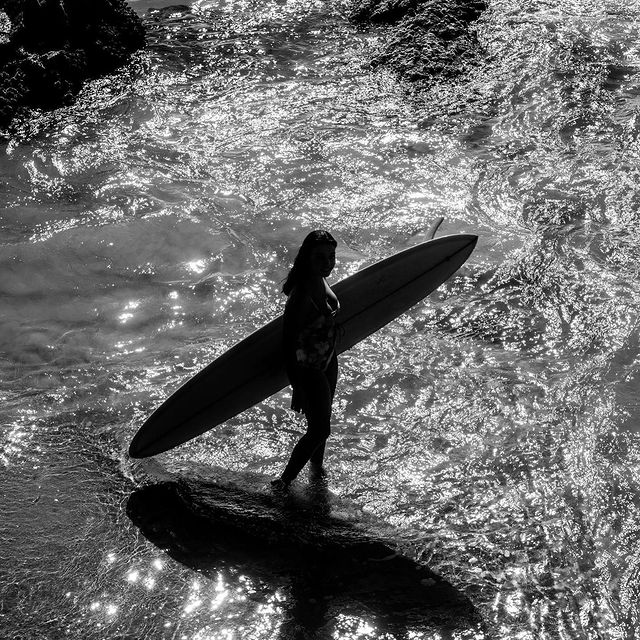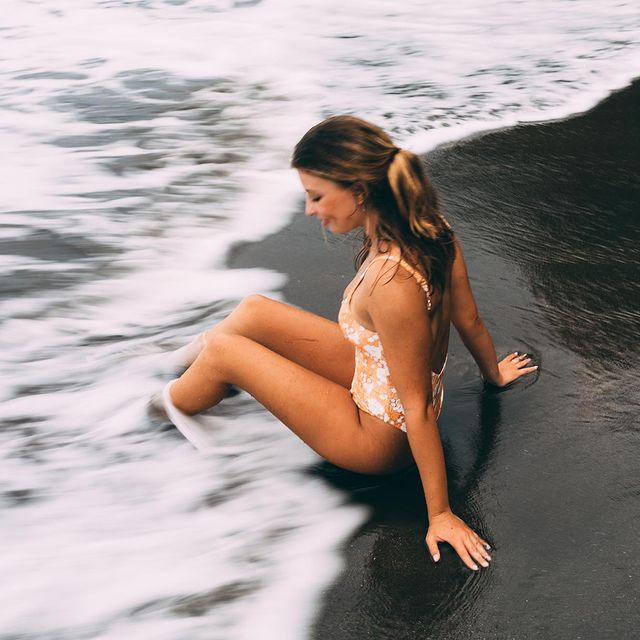Your cart is currently empty!
The Misunderstood Disease by Elise Trigger
Interview: Elisa Routa
Photos: Megan Costello, Lia Turiano, Aljaz Babnik, Madi Jeffery
Elise Trigger grew up in Australia’s ultimate beach town. Elise is this generous and playful girl who’s always called Byron Bay her home. A girl who loves surfing The Pass and who spends most of her time in the water. So far, so good. Nothing new, right?
Type 1 diabetes is the thing the Australian surfer has struggled with her whole life. “People hear diabetes and automatically think Type 2 diabetes equals a sickness that occurred from lifestyle choices,” she explains. “Type 1 diabetes has nothing to do with weight, diet, or exercise, and none of that stuff can cure it. It is an autoimmune disease. Its reason for appearing is still unknown.” How does diabetes affect her everyday life? What are the challenges and the nightmares that she has to face? How does she combine her disease with her passion for surfing? How has facing her fears helped her grow into the person she is today? How has she overcome the negative doubts and not let diabetes drive her life? And how did surfing help her get self-confidence and fight the discrimination?
We wanted to learn more about a common, yet often misunderstood disease by exploring the physical, social, and psychological impact of diabetes through the personal experience of the 20-year-old Australian surfer. Let’s tackle a topic that’s not often evoked in the surfing press. Let’s also discuss the social stigma and discrimination surrounding diabetes based on negative and irrelevant beliefs. “It’s not easy to speak up for yourself especially to people who don’t understand what you’re going through but I am pushing myself to do better and to talk up more when it comes to diabetes,”Elise said about her goal to raise awareness about diabetes. “Hopefully, I can help others who are in the same potentially life-threatening situations to not feel alone about it.”
“Awareness and knowledge around diabetes is something that could potentially save a life.”

I got diagnosed when I was 13 years old. I remember it was very foreign and alienating at the time. In that time as a tween, you are largely wechanging physically and emotionally, and I remember just wanting to be as normal as possible. I was scared of being looked at as an outcast, something which most teens deal with in one way or another through teenagehood. Over time, I began to become less shy and more public about it. I realized that if I wasn’t diagnosed with this autoimmune disease I wouldn’t know anything about it either and, instead of hiding it, I should try and speak out more and use my voice as a way to educate people to understand more.
When it comes to explaining Type 1 diabetes, I always struggle. There is so much stigma that comes with diabetes. People hear diabetes and automatically think Type 2 diabetes equals a sickness that occurred from lifestyle choices. Type 1 diabetes has nothing to do with weight, diet, or exercise, and none of that stuff can cure it. It is an autoimmune disease. Its reason for appearing is still unknown. People are constantly shaming and hassling Type 1 diabetics about their sugar intake however it is irrelevant. Sugar is NOT the reason Type 1 diabetics have diabetes. In fact, it saves our lives by eating it when we have too much insulin. I can eat everything everyone else can. I just need to have insulin with it. Because type 1 diabetics’ pancreases don’t work, they have to substitute it with a needle filled with insulin every time they eat, and have carbs. The amount of insulin varies depending on the person and how much carbohydrates are in the food. Before people go generalizing about diabetics and shaming people, I think it’s a good idea to understand the difference between types of diabetes.
I never want to complain and I hate looking at life in negative ways. I can’t count the number of times someone has replied to my illness with a comment of, “Well at least it’s not cancer or something worse.” I understand how people are not educated about diabetes or the different kinds but I wish this is something people could understand before they talked or spoke their opinions about diabetes in general. I guess the most relatable story I read to understand the disease of Type 1 diabetes was this:
Imagine you’re in primary school and you’re given a raw egg; it’s small, fragile, and complex (a bit like a pancreas—this is the part of my body that no longer works) . The school project is to carry it with you at all times and take care of it. It may seem alright at first but day by day it’s not so fun anymore. You’re told you can live a full life and do everything any other person can do, and yeah you can but you have to carry this egg around with you 24/7 and not let it get smashed. You have to surf with it, play footy with it and you have to make sure it doesn’t roll off the table while you work at school, hang out with friends, party, you’re multitasking all the time. You carry the egg for a while but you get bored of it, right? You want to chuck it on the ground but you can’t. You just have to constantly check that there are no cracks in it. Except the biggest difference between this school project and someone with Type 1 diabetes is that the person with Type 1 diabetes will have to carry the egg their whole life. I think the hardest thing about Type 1 diabetes is the fact this disease never sleeps, there’s no break ever. Diabetes affects my life in that I’m constantly thinking about it. I have to think consciously about every decision I make and I find it hard to switch off.
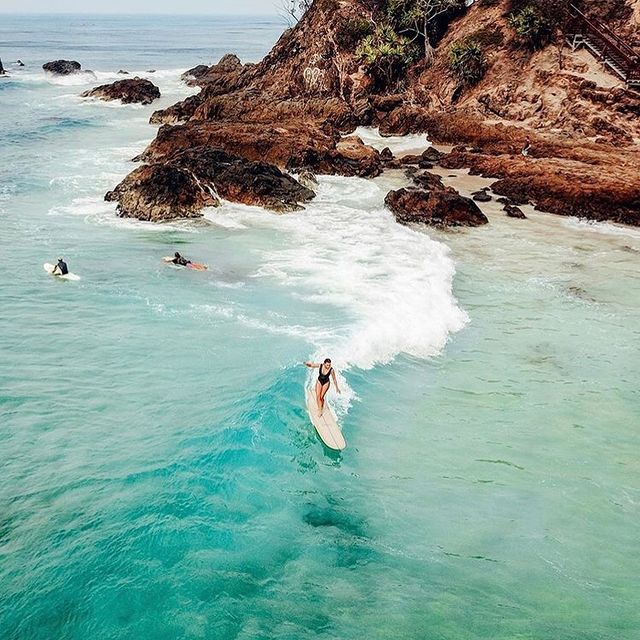
“I am pushing myself to talk up more when it comes to diabetes in hope that others in similar situations will find comfort and confidence.”
It’s not easy to speak up for yourself, especially to people who don’t understand what you’re going through or how life or death your situation can be. I used to and still sometimes face feelings of being fearful, worried, afraid and alienated in these emergency situations. There are still days when people try to teach me about a disease they have no idea about or times when I’m shy to speak up, or anxious to disrupt whatever is happening in the moment to treat my medical needs but I think it’s so important. That’s why I am pushing myself to do better and to talk up more when it comes to diabetes in hopes that others in similar or the same awkward situations who are struggling with these feelings will find comfort and confidence in knowing they are not alone and to always speak up. Hopefully, I can help others who are in the same potential life-threatening situations to always do so and help them not feel alone about it.
I also hope that technology can keep improving for the better and not for the worse so people in the future can live life with this disease easier and easier. But for now the only option is to look up and keep living the life of my dreams. I hope I can help pave a way for others to realize it’s not impossible and we are the ones paving the future for more change. Awareness and knowledge around diabetes is something that could potentially save a life.
“I believe that being afraid to die is being afraid to live.”
It’s always been crazy when I look at the kids around me and how easy it is for us to take our body parts for granted. I’m constantly wishing I could have a working part that they have while they run their bodies into the ground. I put so much effort every day to try and keep my sugars in line that sometimes I feel like giving up and asking myself what’s the reward in it all. It’s easy to put a lot of pressure on yourself and I used to struggle a lot overthinking the negative side effects of having uncontrolled sugars. There was a point where I would be so worried or anxious about it all that I wouldn’t want to do anything. I was angry at life and took in all the negativity of people who were telling me how I should live. I think the best thing diabetes has taught me is how to filter this information and find a healthy balance. I believe that being afraid to die is being afraid to live. I know when I’m on my deathbed I don’t want to have lived just an ordinary life. It is about finding that balance of holding yourself accountable for your actions but also knowing when to loosen your grip so you don’t choke yourself up.
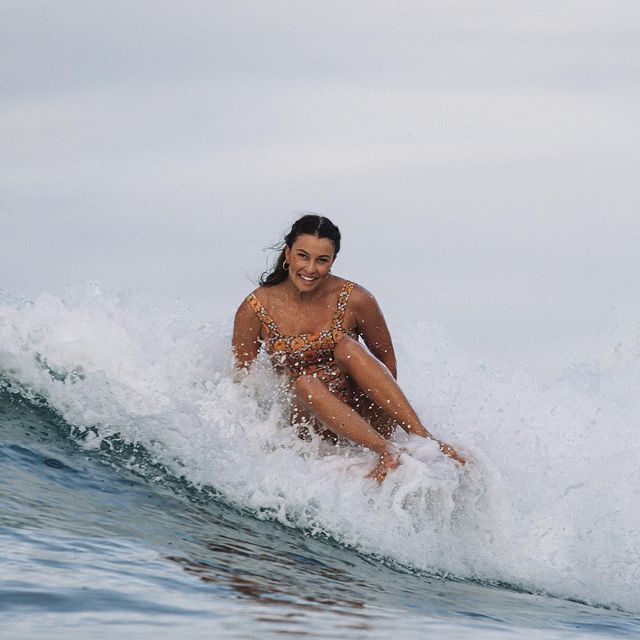
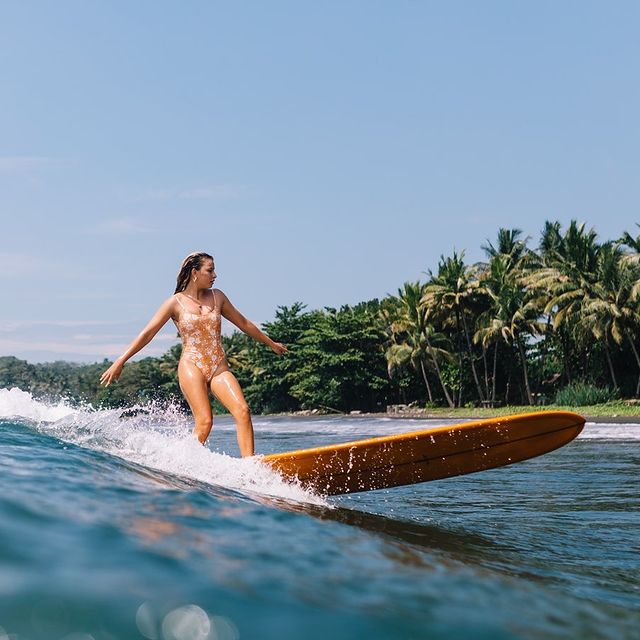
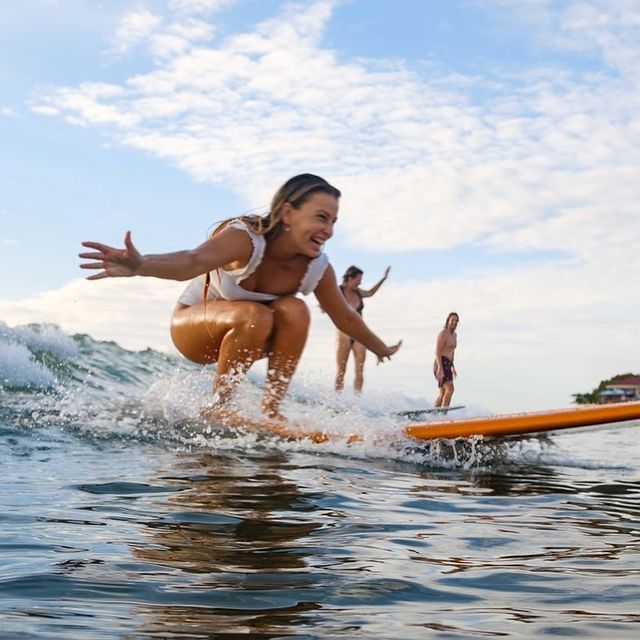

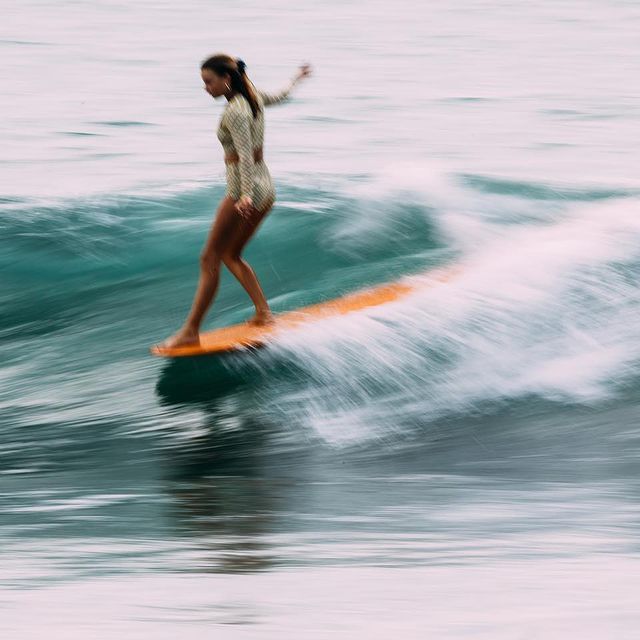
“Surfing and this disease have definitely taught me so many positive things about life. The confidence that surfing has brought me helps mentor me through the waves of life.”
Growing up as a surfer in Byron is the biggest treat I could ever ask for. I’m so grateful for the waves we have at our doorstep and having the ocean as a sturdy output, a constant variable to go to throughout all life’s obstacles. The sea has taught me so many lessons, the main one being respect. The sea has taught me to have confidence in myself, that I can achieve anything I put my mind to, and to never doubt my abilities. I used to be scared of the ocean, scared of surfing and big waves. And for good reason. Now I feel like I’ve learnt the beauty of all that and the need to stay humble when it comes to nature. It’s wilderness versus human power. I believe it’s important to acknowledge and live knowing that nature’s language of energies will forever be more powerful than any form humans could interpret or speak. I’m so grateful for life. The confidence that surfing has brought me helps mentor me through the waves of life. It makes my heart sing seeing so many girls in the water these days. Especially looking around and seeing girls shredding and dominating the surfing scene (laughs). My favorite thing is seeing girls be brave enough to hustle up at the point in between all the testosterone and getting a bomb! I just can’t wipe the smile off my face after that! I feel like it is becoming more and more normal for women to be able to be themselves and not feel sorry or silent for who they truly are inside or have to live by outdated perceptions. It’s great! Surfing and this disease have definitely taught me so many positive things towards life.
Surfing to me is more than just a sport. It’s all about connection. Life’s all about looking for pure connections both internally and externally. Since I can remember my dreams have included expressing myself and connecting to others through that in some sort of way. When I was young I dreamt of being a singer. After that, it was a dancer and actor. I think maybe those ideas transformed into my surfing and modeling lifestyle that I’m involved in now. Surfing gives me a pure passage and a source of connection that is the most human and alive thing I’ve ever felt. I feel as though these feelings have helped me discover and know who I am, and how my body reacts in its most natural human-nature relationships. Travelling and surfing unknown places and meeting new people has always been what’s made me feel alive. At the moment, many of those dreams are put on hold for a little bit, but I am hoping to find a specific van and go on some adventures exploring more of the beautiful coastline we have around Australia when I am able!

